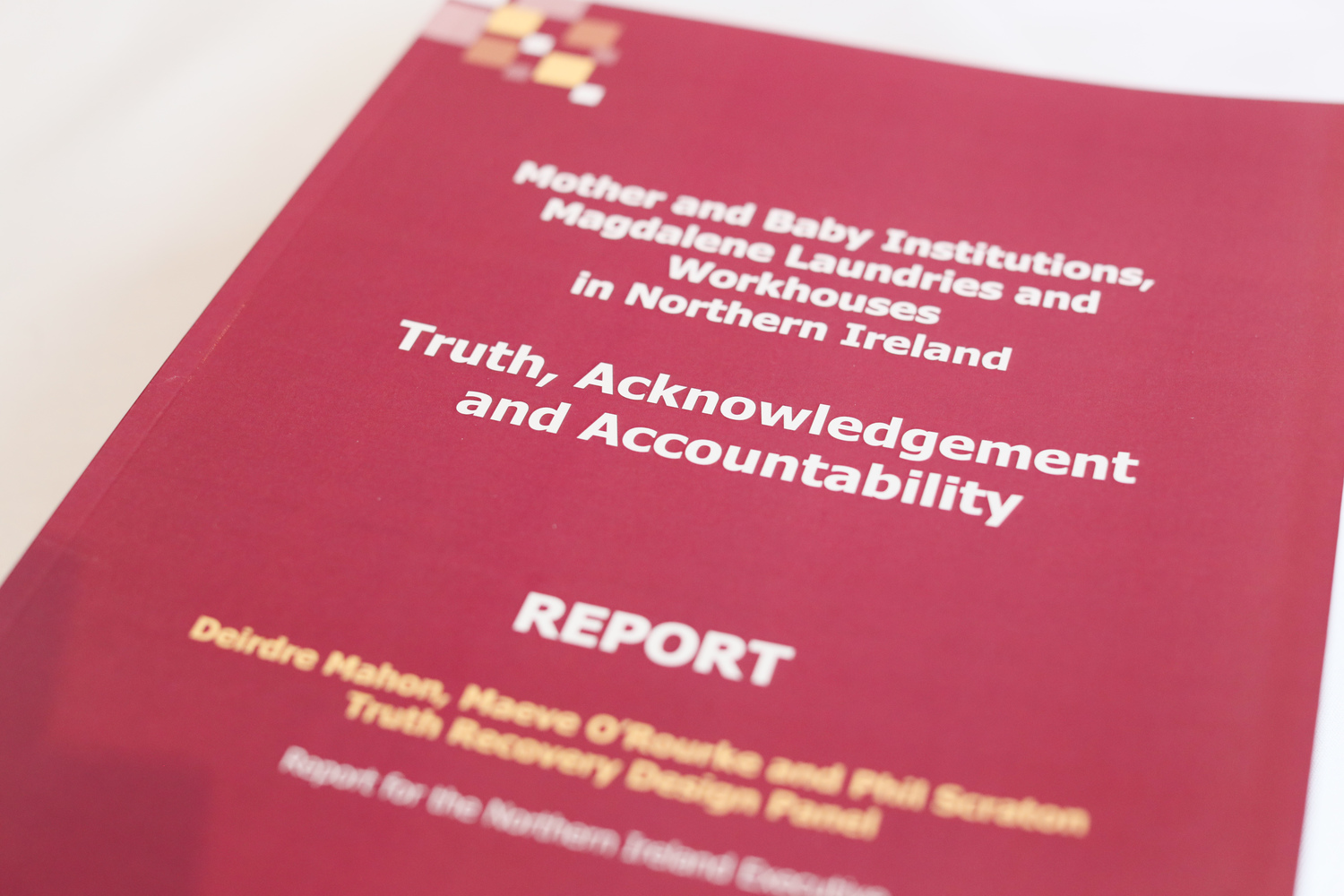SEVERAL survivors of mother and baby homes are considering legal action after their email addresses were mistakenly shared in a data breach which has caused "indescribable distress".
A senior civil servant in Stormont’s Executive Office has been forced to apologise after the addresses of 77 people, including birth mothers and adoptees, were visible in an email sent on Thursday of last week.
The people are members of the Truth Recovery Programme, a consultative body which was set up after a 2021 report exposed harsh conditions at mother and baby homes, Magdalene laundries and workhouses in Northern Ireland between 1922 and 1990.
One survivor, whose family do not know she was born while her mother was in Marianvale mother and baby home in Newry, said she was appalled that her email address had been shared.
“I don’t want people seeing my email address and I’m sure people don’t want me seeing theirs,” she said.
“People’s names are very clear in the emails.”
In a letter seen by The Detail, a senior civil servant told forum members that the breach happened after they were sent invites to a meeting.
He said the breach was “a genuine error, but we recognise that it should not have happened”.
“Over the past twenty months we have sought to develop good, open, and honest relationships in this programme, so the team and I personally wanted to apologise to you all in writing as we know that not everyone attends the Consultation Forum meeting,” he wrote.
“We hope that you can accept our apology and know that the work we do with you and on your behalf is always with sincerity and integrity.”
A spokeswoman for the Executive Office said the invite to the meeting was issued “on an anonymous basis but some members of the Consultative Forum mailing list could view email addresses of other members”.
“After investigation, we identified between 9 and 77 email addresses which may be visible depending on the email platform,” she said.
“All forum members have been notified of this incident. This was a genuine error, but we recognise that it should not have happened and have apologised unreservedly.
“We have reported the incident to the Information Commissioner’s Office (ICO) as a precautionary measure.
“In parallel, the programme is working with departmental colleagues in IT and data protection to help make sure this does not happen again.”
A spokeswoman for the Information Commissioner’s Office (ICO) said: “The Executive Office has made us aware of an incident and we will be making enquiries.”
The data breach is the latest to affect survivors of church and state-run institutions.
In May 2020, the personal details of around 250 survivors of historical institutional abuse (HIA) were mistakenly revealed in a newsletter circulated by the HIA Interim Advocate's Office.
Survivors later received an apology and damages.
The survivor who spoke to The Detail said she was also affected by the 2020 breach.
“This has now happened to me twice,” she said.
“I can’t believe it. In this day and age it shouldn’t be happening, especially with vulnerable groups.
“It just adds more stress.”
Some of the survivors whose details were shared are now considering legal action.
A spokeswoman from Phoenix Law, who represent many mother and baby home victims, said the “significant breach” has meant “many survivors have had their trust shattered”.
“Our clients have suffered significant trauma from life experiences and to have their private information shared among a group when many have been unable to confide in close relatives has caused indescribable distress,” she said.
“Just like the HIA redress data breach our clients have been let down once again and are now really concerned about this process.”
The breach happened just two days after the PSNI mistakenly shared details of 10,000 members of its staff - information which police have confirmed is now in the hands of dissident republicans.

A report into mother and baby homes, Magdalene laundries and workhouses was published in 2021. Photo by Press Eye
The Truth Recovery Programme was established following a damning report into mother and baby homes, Magdalene Laundries and workhouses in Northern Ireland.
The long-awaited 2021 report found that, between 1922 and 1990, at least 10,500 women were sent to mother and baby homes and 3,000 were sent to Magdalene laundries.
Victims of rape and incest were among those sent to the institutions. Around a third of women were teenagers, including one girl aged just 12.
Following the report, a public inquiry into mother and baby homes was commissioned by the devolved government at Stormont.
However, the collapse of Stormont months after the report was published meant that an inquiry has still not been established.
 By
By
